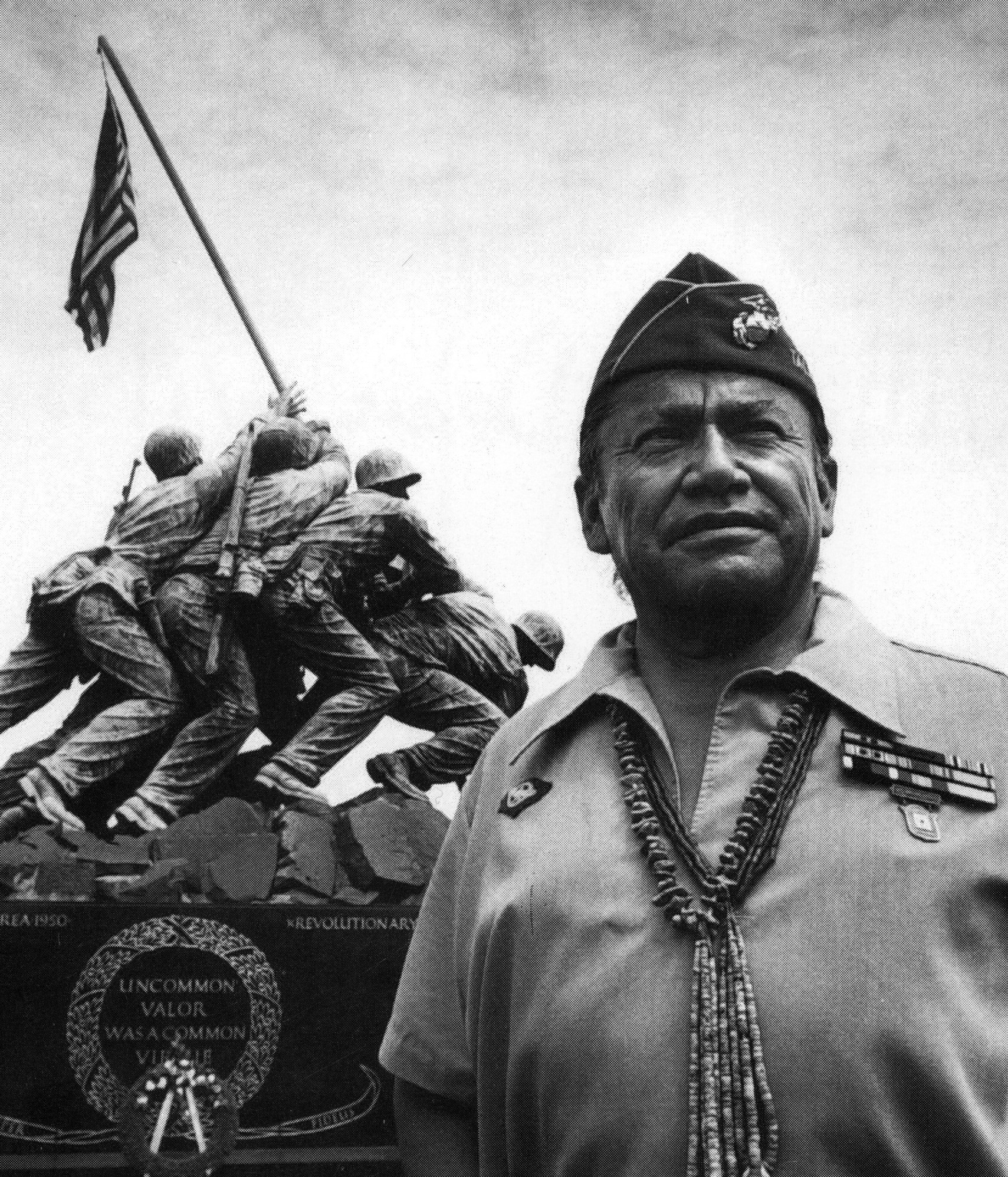YAZZIE-WILLIAM
WILLIAM DINE YAZZIE

SSGT

A LIFETIME OF SERVICE BY
AN ORIGINAL NAVAJO CODE TALKER
William Diné Yazzie was reportedly born into a family of sheep herders on November 19, 1923 in the Navajo Nation at Nazlini, Apache County, Arizona. Birth certificates were not prepared for Navajo births as birth dates were passed by word of mouth at the time of Yazzie birth, thus the 1923 date is questioned. In April 1942, Marine Corps recruiters appeared at the reservation seeking Navajo youth for what they described only as “special duty.” Concerning his recruitment, Yazzie has said, “I was, according to my parents, only 16 and I remember the day that we were physically examined at Fort Defiance Public Health Service. At noon, the recruiters had gone to lunch, and we were left in the hall. We were mingling around when I saw the stack of folders on the recruiter’s desk. Mine was sitting way off to the side, tagged with the information that my parents wouldn’t consent to my induction. I gently pulled the folder out and put it underneath the big stack. That’s how I got in at age 16.”
Yazzie thus became one of the original group of 29 Navajos recruited for “special duty” and on May 4, 1942 they reported to Fort Wingate where they were sworn into the Marine Corps. The group was then bussed to San Diego for recruit training which was completed on June 27, 1942. Following graduation, the group was taken to nearby Camp Elliott on the outskirts of San Diego where they finally learned their “special duty” assignment was to organize a code based on their unwritten Navajo language which was spoken by only a very few individuals who were not native Navajos. They were also instructed to tell no one, including their family, about their assignment. The 29 new Marines did as instructed after being taken to nearby Camp Pendleton, and when their code had been developed the group was disbursed for service with combat Marines throughout the Pacific area. Yazzie reportedly served in combat with the First, Second, and Fifth Marine Divisions at Guadalcanal, New Hebrides and Tarawa. The Navajo code talkers were so successful that the Japanese never broke the code, and it was credited with saving countless American lives and for being a major factor in defeating the Japanese.
After the close of World War II, Yazzie remained on active duty as on March 2, 1947 he is known to have been awarded a third-place medal in a shooting match in Hawaii. His family reported that after being released from active duty Yazzie returned to the reservation but continued to serve in the Marine Corps Reserve until he retired after 20-years of service. During this time, he also continued to represent the Marines in military shooting competitions across the country.
When he returned from the war, Yazzie learned that missionaries had renamed his father Paul Wilson, so Yazzie also adopted Wilson as his last name which he used for the remainder of his life. His middle name morphed from Diné to Dean over the years.
In the 1960’s, William Dean Wilson became a judge for the Navajo Nation, where he was recognized for his leadership and intelligence. He also reportedly worked and retired from the Branch of Land Operations after 35 years in Chinle, Arizona. Wilson and his wife became strong advocates for honoring and preserving Native American traditions until his death from a heart attack on December 15, 1999. He was survived by his wife, daughter, two grandchildren, and two great-grandchildren, and has been buried in a family cemetery in the Navajo Nation at Chinle, Arizona.
Submitted by CDR Roy A. Mosteller, USNR (Ret)

